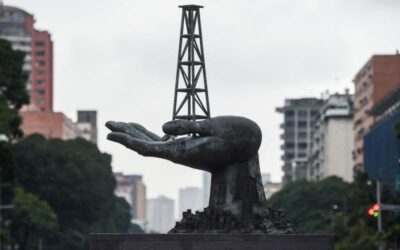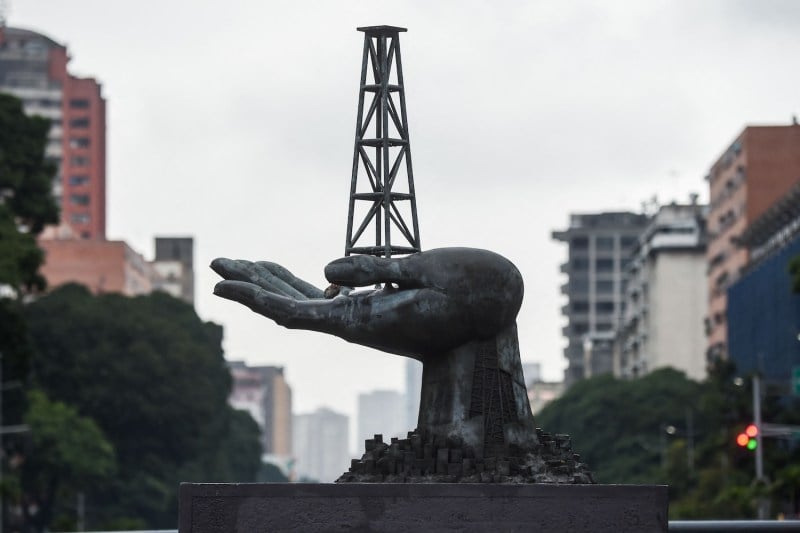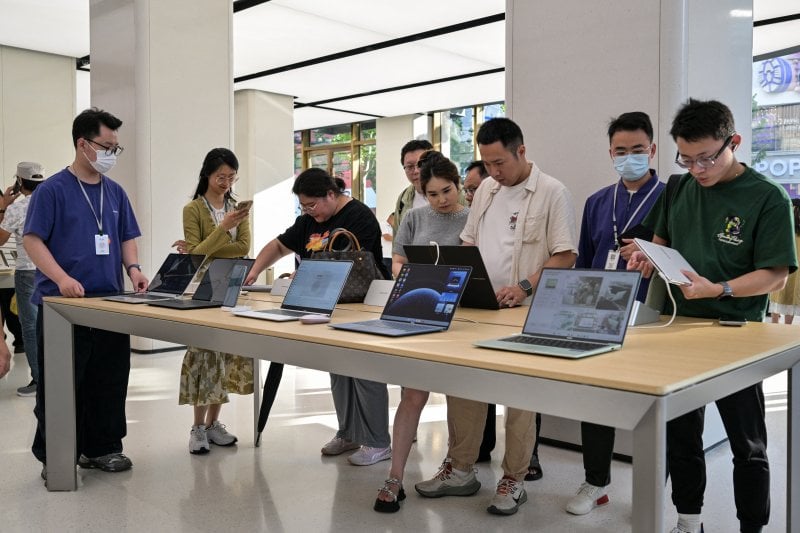India’s Tesla Policy Is Inseparable From Trump

India’s Tesla Policy Is Inseparable From Trump
The Indian government’s tense economic relationship with Elon Musk is now highly political.
U.S. President Donald Trump and White House Senior Advisor, Tesla and SpaceX CEO Elon Musk sit in a Model S on the South Lawn of the White House on March 11, 2025 in Washington. Andrew Harnik/Getty Images
As sales for Tesla vehicles tank in the United States and Europe, things are looking up for Elon Musk’s car company in India, a vast market of middle-class consumers that he has been trying to enter for years. The Indian government is reportedly considering a reduction in tariffs on imported electric vehicles. Musk is already hiring salespeople as well as scouting for showrooms in Delhi and Mumbai.
Starlink, another Musk-owned business, also received a boost in late March when Indian telecommunication giants Jio and Airtel dropped their resistance to sharing millions of potential customers with the satellite-based internet service provider and inked a deal to become the company’s retail partners. The Indian companies will sell the equipment that Starlink uses to run high-speed internet, help it lure Indian customers, and perhaps even advise on how to navigate bureaucratic hurdles on its behalf.
As sales for Tesla vehicles tank in the United States and Europe, things are looking up for Elon Musk’s car company in India, a vast market of middle-class consumers that he has been trying to enter for years. The Indian government is reportedly considering a reduction in tariffs on imported electric vehicles. Musk is already hiring salespeople as well as scouting for showrooms in Delhi and Mumbai.
Starlink, another Musk-owned business, also received a boost in late March when Indian telecommunication giants Jio and Airtel dropped their resistance to sharing millions of potential customers with the satellite-based internet service provider and inked a deal to become the company’s retail partners. The Indian companies will sell the equipment that Starlink uses to run high-speed internet, help it lure Indian customers, and perhaps even advise on how to navigate bureaucratic hurdles on its behalf.
And yet, Musk still faces a whole range of political challenges as he ventures into the Indian market—including fallout from his social media company X having recently sued the Indian government, accusing it of content censorship. Moreover, Musk’s ally—U.S. President Donald Trump—has reportedly warned him against manufacturing his cars in India, which the Indian government considers a necessary condition for lowering trade barriers.
It is equally unclear if the Indian government is any closer to achieving its own apparent political objectives in negotiating with Musk: ingratiating itself to Trump and getting a better deal on his administration’s so-called reciprocal tariffs.
On a recent spring day in the Delhi suburb of Gurgaon, taxi driver Ravinder Singh said that he was desperate for more electric vehicles on India’s streets—and for the chance to purchase one himself.
“There are not many options—also, fewer charging points,” he told me, sitting next to him.
He can barely afford an electric vehicle (EV) produced by Indian manufacturers such as Tata and Mahindra—roughly sold at around $15,000—and found buying a Tesla, typically priced at t$43,000 at minimum, unthinkable.
Heera Bahadur, an Uber driver in Gurgaon who hails from Darjeeling—India’s tea capital, tucked in the hills in the northeast of country—was keener on the idea of a Tesla. He said that they’re more efficient and gave a much better mileage.
“My relatives in Dubai tell me you can run 500 kilometers [around 310 miles] after charging a Tesla one time. But our Indian vehicles—look, there is one,” he said, pointing to an Indian EV, a Mahindra XUV400. “Our Indian electric cars are only good within the city, for short rides.”
He added that he could spend more than $20,000 and said he expected the Indian government to make sure that Tesla sold at reduced prices in the country.
CNBC reported last month that Tesla was likely to launch sales in India in April at reduced rates, and with supply provided by a factory in Germany. However, while pricing is one issue, demand is another. Sales of passenger vehicles in India exceeded 4 million last year—second to the United States and China in numbers—and while the purchase of EVs in India rose by 20 percent, it still added up to just about 100,000 cars.
Experts say these issues have delayed Tesla’s plans in India, especially since the country’s infamous and exorbitant tariffs on imported vehicles, intended to protect domestic industry, further add to the costs of business. Some reports suggest that New Delhi is planning to chop import duties from 110 percent on imported cars to merely 15 percent on electric vehicles, but only if the EV manufacturer sets up a plant in the country and invests at least $500 million.
Musk himself has found the conditions onerous, while Trump finds the proposition objectionable.
“If he built the factory in India, that’s OK, but that’s unfair to us,” Trump said in an interview with Fox News in late February. “It’s very unfair.”
Eliot Pence, the former head of international at Anduril, an artificial intelligence and robotics start-up, indicated that Tesla may have to give in to Indian demand if it wants to sell in the country. But that scenario runs contrary to Trump’s agenda.
“Trump has been exceedingly clear he wishes to bring manufacturing in all forms back to the US, that includes the auto industry,” Pence told Foreign Policy over WhatsApp.
Trump’s opposition to a Tesla factory in India makes it difficult for New Delhi to open up the Indian market to the company, lest it undermine domestic manufacturers without any broader benefit for the country. It would also be in direct contradiction to Prime Minister Narendra Modi’s own Atmanirbhar Bharat Abhiyan or “Self-Reliant India Mission,” a program that is supposed to encourage domestic manufacturing.
It also exposes the limitations of India’s strategy of attempting to appease Trump through Musk. Starlink offers another such example. Jio and Airtel—the biggest Indian telecom companies—initially opposed Starlink’s entry into the country, arguing against allocation of the satellite spectrum for Musk’s internet company. But that changed amid Trump’s accusations that India’s high duties on U.S. products were obstructing American firms’ access to the Indian market.
“Given Musk’s relationship with Trump, India wants to ingratiate itself to Trump’s right-hand man—or, some would say, more powerful than Trump,” said Paranjoy Guha Thakurta, an Indian journalist focused on questions of political economy, in an interview with Foreign Policy over the phone.
In a recent report, CNBC cited sources close to the Indian government as having argued that “Musk’s influential role in the White House no doubt incentivized the Indian government to reevaluate a Starlink deal.”
The United States’ foreign policy is increasingly seen as intertwined with its economic interests, and there is a widespread view that embracing Musk and his various enterprises, especially since he is believed to have Trump’s ear (at least for now), is one way to assuage Trump’s concerns over the trade imbalance. Starlink’s progress, some Indian experts and political opposition believe, is a result of the Indian government’s persuasion.
Jairam Ramesh, a prominent leader of India’s primary opposition party, the Indian National Congress, insinuated the Starlink agreement was signed to buy peace with the U.S. president in the middle of a tariff war.
“It is abundantly clear that these partnerships have been orchestrated by none other than the PM himself to buy goodwill with President Trump through Starlink’s owner Mr. Elon Musk,” Ramesh posted on X. “But many questions remain. Perhaps the most important one relates to national security. Who will have the power to switch connectivity on or off when national security demands it? Will it be Starlink or its Indian partners?”
E.A.S. Sarma, a former secretary in the Indian government, pointed out various security concerns pertaining to Starlink’s presence in Indian skies in a letter to the Department of Telecommunications (DOT). He pointed to Washington’s changing policy in Ukraine and Musk’s ties with China, which has an intractable border dispute with India.
“In view of the latest reports about the US threatening to ‘shut off’ Starlink in Ukraine, unless Ukraine allows a lion’s share in its mineral resources in favour of the US, your Department should tighten safeguards against Starlink,” Sarma wrote. “In my earlier correspondence with your Department I had proposed that satellite spectrum be reserved for defence and other strategic uses in India.”
Sarma went on to add, “I am surprised that DOT should go out of the way to accommodate Elon Musk’s StarLink by allotting it strategic satellite spectrum.”
But if New Delhi was indeed hoping to influence Trump through Musk, it hasn’t made any gains so far. Trump has levied 26 percent tariffs on all Indian exports to the United States. And Musk hasn’t spared New Delhi; his social media company X has filed a lawsuit against the Indian government, alleging “unlawful content regulation and arbitrary censorship.”
Grok—a new artificial intelligence feature on X—has recently offered responses to some political questions that Guha Thakurta, the journalist, said has “pissed off” the right wing in India. For instance, BBC reported that Grok said Modi’s main political opponent, Rahul Gandhi of the Indian National Congress party, was “more honest” and had an edge on Modi in formal education.
Musk has taken a “preemptive” measure, “even before the Indian agencies, departments take legal action against Grok,” Guha Thakurta said.
The Indian government is fumbling to respond. Modi, who is relentlessly advertised by his party as a global statesman, stands at rare risk of humiliation in front of his domestic audience.
Some argue that examples of humiliation are already evident. As Modi met Musk a month ago along with a row of India’s senior-most government officials, the American businessman sat with his young children.
“It was disrespectful” of the office that Modi holds, Guha Thakurta said.
Such tensions may inform why New Delhi hasn’t yet given regulatory approvals to Starlink—and why Chinese EV maker BYD, according to the Indian press, is exploring setting up a manufacturing plant in the Indian state of Telengana.
X: @anchalvohra
More from Foreign Policy
-

An illustration shows a golden Cybertruck blasting through a U.S. seal of an eagle holding arrows and laurel. Is America a Kleptocracy?
Here’s how life could change for the rich, poor, and everyone in between.
-

The flag of the United States in New York City on Sept. 18, 2019. America Is Listing in a Gathering Storm
Alarms are clanging at the U.S. geographic military commands around the globe.
-

U.S. President Donald Trump shakes hands with Supreme Court Chief Justice John Roberts during Trump’s inauguration in Washington, D.C. The U.S. Judicial Crisis Is Uniquely Dangerous
But other democracies provide a roadmap for courts to prevail over attacks from the executive branch.
-

An illustration shows a golden Newtons cradle with Elon Musk depicted on the one at left and sending a globe-motif ball swinging at right. Elon Musk’s First Principles
The world’s richest man wants to apply the rules of physics to politics. What could go wrong?








Join the Conversation
Commenting on this and other recent articles is just one benefit of a Foreign Policy subscription.
Already a subscriber?
.
Subscribe
Subscribe
View Comments
Join the Conversation
Join the conversation on this and other recent Foreign Policy articles when you subscribe now.
Subscribe
Subscribe
Not your account?
View Comments
Join the Conversation
Please follow our comment guidelines, stay on topic, and be civil, courteous, and respectful of others’ beliefs.
Change your username |
Log out
Change your username:
CANCEL
Confirm your username to get started.
The default username below has been generated using the first name and last initial on your FP subscriber account. Usernames may be updated at any time and must not contain inappropriate or offensive language.